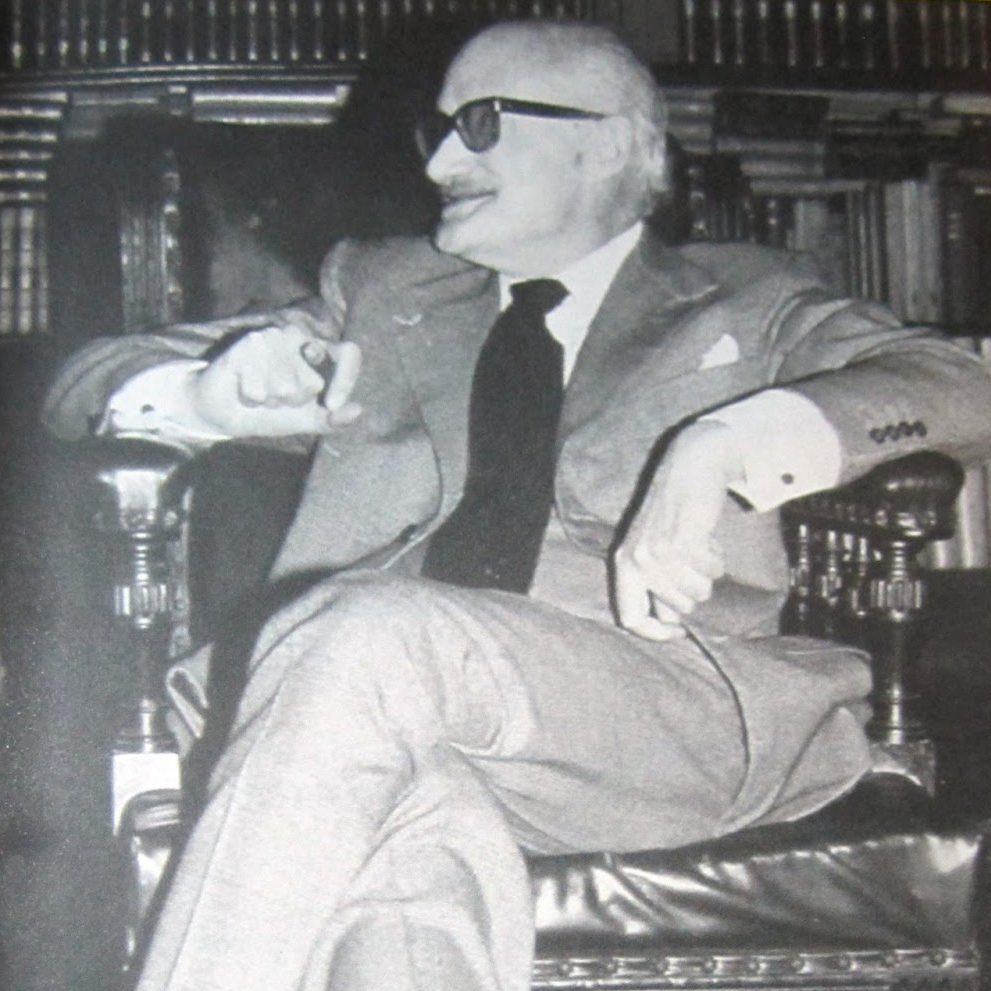See the list of topic categories here.
When everyone wants to be a somebody, the only decent response is to be a nobody.
Social indifference is one of the most respectable positions in our dying civilization, and it should be fought for, especially today as its enemies attack it with a fury never before seen and its defenders abandon it.
It is not worth talking to someone who is not a little tired of everything.
Let us not pompously insist that the inevitable be accepted with “heroism,” but rather that it be greeted with courteous resignation.
You have to learn to do nothing, provided that doing nothing is not doing trivial things, and as long as that emptiness of the spirit is not an abominable emptiness of the soul.
Resignation should not be an exercise in stoicism but a surrender into divine hands.
We obviously require a stoic-type attitude to prepare for the abandonments, the shipwrecks and failures of life. But what disgusts me is the idea that it is necessary to deny the value of things in order to learn detachment. I will not declare myself satisfied until I find a doctrine that tells me: this is noble, this is beautiful and great, prepare to lose it, prepare to renounce it with a serene heart, with a firm intelligence; one that regrets what it abandons and, at the same time, calmly accepts the dispossession imposed.
Solitude is the laboratory where commonplaces are verified.
The modern world bitterly censures those who “turn their back on life.”
As if it is possible to be sure that turning one’s back on this life is not turning one’s face toward the light.
“Escapism” is the favorite accusation of the imbecile.
Everything depends, we have been told, on social and political conditions; but, as they in turn depend on everything else, and since we cannot collaborate with their practical solutions, it is better to turn our backs and devote ourselves to contemplation, which that impotence cannot annul.
Be indifferent without cynicism, and passionate without excitement.
The only substitute for greatness is a lucid resignation. Only this comforts when greatness is stolen from us by fate. It is the virtue of the disillusioned ambitious; it is the humility of the proud who, without resigning, resign themselves.
Serene is the state of mind of one who has entrusted God, once and for all, with everything.
One proper use of liberty is to embrace one’s path and destiny, but for me liberty means refusing to do that. The right to fail is an important one.
It is not intelligence but vanity that reproaches “intellectual isolation.”
We are not debased by the unavoidable human condition in which we find ourselves. Rather, we are debased when we embrace it with resignation and satisfaction. When an attitude of surrender allows us to slip easily into situations, without consideration or friction, we have lost our dignity. There is nobility in considering it impossible to automatically and wholly accept the ordinary demands of human existence.
The worst situation: to sense the impossibility of our goal, and, simultaneously, the impossibility of renouncing it. The most difficult thing is to resign oneself without bitterness, and live with dignity a life in which fate takes away from us all noble undertakings.
Serenity is the fruit of uncertainty freely accepted.
Whoever does not turn his back on this present world dishonors himself.
Each act of resignation is a brief agony.
Lucidity, in this age, requires abandoning hope.
Resolving to simply be what we are is a dangerous doctrine, since for many, only by deceiving themselves are they capable of nobility. Resigning ourselves to what we are may not always spring from a desire to abide by God’s will as to collaborate with the dark will that degrades His works.
“Renouncing the world” is less an achievement and more a temptation as Progress progresses.
The one who anxiously asks what can possibly be done, let us answer honestly: all that is possible today is an impotent lucidity.
Nothing fortifies laziness so much as an accidental glimpse of the futility of everything.
He who merely resigns himself to his lot is frustrated by a seemingly meaningless fate.
He who humbly accepts it, however, knows that he simply does not understand the significance of the divine decision concerning himself.
Solitude helps us to be more intellectually honest,
but causes us to be less intellectually courteous.
If we can be sure that voluntary defeat is not pure foolishness, what a joy it is to allow defeat when victory is achieved only with vulgar gestures, with cruel acts, with ignoble thoughts.
We should not expect anything from anyone, nor disdain anything from anyone.
Both in the bourgeois country and the communist land, “escapism” is met with disapproval, regarded as a debilitating vice, singularly perverse. Modern society discredits the fugitive so that no one will listen to the stories of his travels. The mind of man, his tragic and noble destiny, the arts, history, these are not criteria that modern mediocrity can tolerate. “Escapism” is a danger, for it grants a fleeting vision of abolished splendors and the probability of an implacable verdict on modern society.
There is a greatness that only ambition reaches and a greatness granted to resignation alone.
The intelligent man should only regard himself as a casual witness to the human condition.
It is up to each person whether or not his soul, after the years have stripped away all pretension, is revealed as being full of bitter spite or humble resignation.
Note: Dávila was a Colombian political philosopher and in the Latin church. His aphorisms are presented here for the purposes of enjoyment, study, and historical record, but do not necessarily reflect the opinions of this writer. For more information on Dávila, see this introductory post. For information on how to live your life, go to church and read the Church Fathers/Saints.
Featured image: Antique book cover from Olde Books



